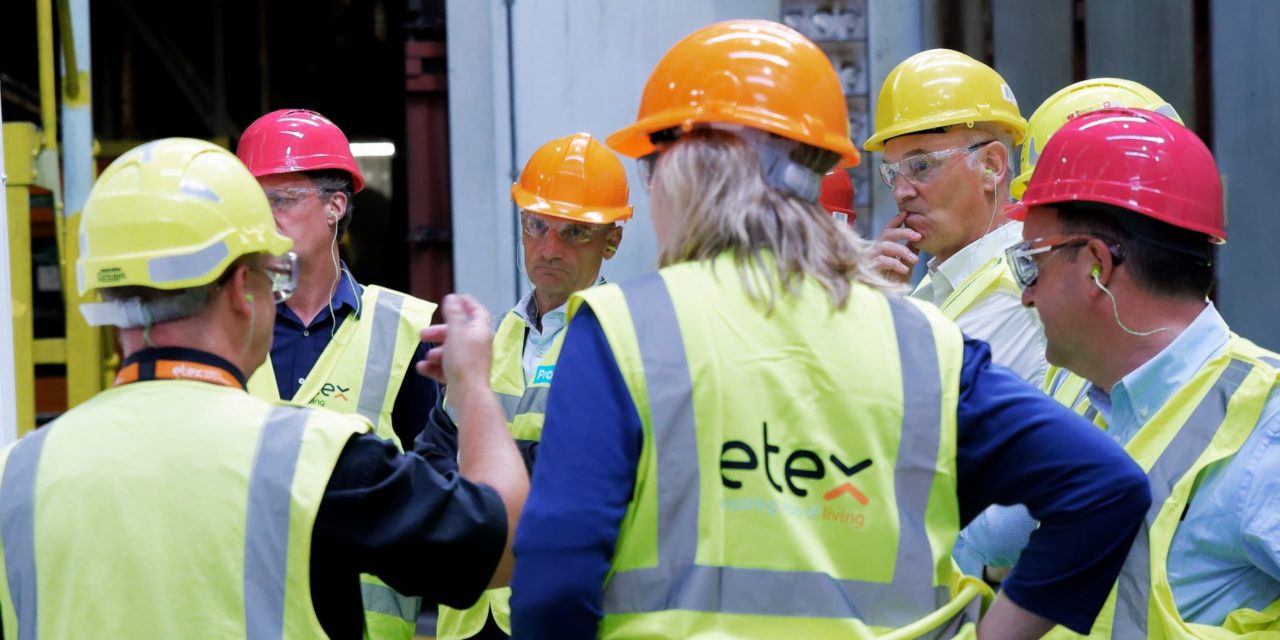Training, collaboration and collective responsibility are the three key ways the construction industry can tackle risk, according to recent research carried out by Etex.
Etex asked 250 construction industry decision makers including contractors, project managers, procurement teams, asset managers, consultants and architects for their views on risk, including risks specific to their roles. The findings were then put to a panel of experts to get their take on the matter.
Overall, the majority of respondents (63%) believed that the construction industry is good when it comes to identifying risks, with three quarters believing that the discussion around risk happens at an early enough stage in a project’s lifecycle. Confidence in their profession’s ability to identify risk was highest amongst project managers (76%) and contractors (70%).
The research and panel discussions provided three core recommendations when it comes to risk across the board:
- A focus on training and skills development is crucial to mitigate risk and increase quality.
- Collaboration is essential from the start to identify risks quickly and throughout a project to prevent costly issues down the line.
- Risk is a collective responsibility, but policy makers could be doing more.
Commenting on this, Melanie Davies, Market Manager at Etex, said: “Risk is a huge challenge for the entire construction sector right now, with a perfect storm of different elements such as labour shortages and changing H&S regulations contributing to this. There are, however, ways that industry can get around some of these challenges and it’s promising to see a number of industry experts citing collaboration, training and skills-development as key ways to reduce risk. It’s now about how the industry goes about improving in these areas, which really does need to be a collective effort from all areas of the supply chain.”
When asked about the top factors that create the most risk in the sector, a lack of quality control, unclear Government guidelines and a shortage of high-quality materials all ranked top. A total of 73% of respondents said that they were concerned about liability issues when specifying building materials, with contractors stating this was their biggest worry (84%).
Most respondents said that they worry regularly about the decisions they make and the risk implications, with architects and asset management professionals both stating it as a high concern (69%), followed by project managers (68%) and contractors (67%).
However, the majority of respondents agreed that the government should determine the burden of risk for stakeholders, with 61% saying that it was up to the government to provide clear guidelines for construction sector stakeholders to be able to reduce risks.
Mathew Baxter, Founder of echelon Consultancy, added: “Over the past few years, the government have tried to be more cooperative. There has been a tendency to push legislation out which changes fairly fundamental roles. I think it’s improving, but there still needs to be more consultation from the government to understand the thoughts of those on the ground before implementing new legislation. If there was ever a perfect storm in the sector it’s now, so the government need to have a hands-on, hand-holding approach when implementing new legislation.”
For more information and to read the research findings in full, please visit: https://etex-bp.co.uk/etexexperts/


